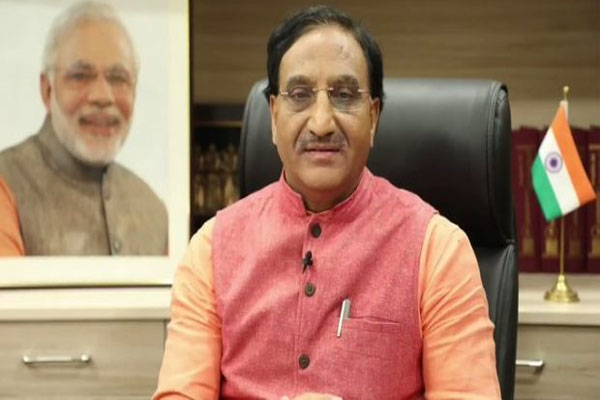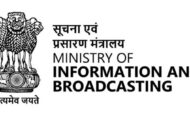new Delhi. Our new education policy which came after 34 years and our first education policy of the 21st century is a revolutionary step in India from the educational point of view! The draft of the new education policy proposed by our honorable Education Minister Ramesh Pokhriyal Nishank ji will bring about a paradigm shift in our schools and institutions of higher learning and help India emerge as a superpower of knowledge globally! The new education policy proposed to allocate 6 percent of our GDP to the education sector is unprecedented!
Positive change in Indian higher education requires an effort that coordinates world-class norms and local needs. Multidisciplinary education, state-of-the-art research, flexible curriculum and vocational training are some of the important steps suggested in the new education policy that will help in building a fully trained and properly qualified workforce. It also proposes to encourage through the ‘National Research Foundation’ to improve the ecological system of research in institutions of higher education, which will act as a catalyst to improve the quality of academic research in these educational institutions! All these initiatives will promote creativity, innovation, deep thinking, a tendency to find solutions to problems, the art of working in groups and communication skills in teachers and students!
In the new Education Policy 2020, the use of technology in education has also been given importance and some of the possibilities are considered such as blended learning, student-tailored curriculum and measuring student learning progress! In addition, the new education policy also recommends to continuously test the performance of universities through evaluation and quality examination mechanisms!
Emphasis on internationalization of education
As we all know, the principle of internationalization of higher education is based on the exchange of students, teachers, institutions and programs between different countries but in India it has been mainly one sided! Every year about 5 lakh students from our country go abroad for education, while every year for the last three years, about 40,000 students (mainly from South Asia and Africa) come to our educational institutions to get education from outside. Have been Similarly, about 0.3 percent of our teachers are from international background! The main reason for this development is that the standard of education in international universities is better than our universities! The new education policy will help in addressing all these challenges and guide them to make Indian higher educational institutions of international standard!
Steps towards improving the quality of research
Establishment of strong research institute and propagation and dissemination of R&D at the level of state and national universities is an important point in the new education policy! The new education policy focuses on research and innovation through Startup Innovation Center, Technology Development Center, better coordination between industries and educational institutions, and interdisciplinary research etc. The ‘Indian Research Foundation’ will promote research and innovation through funding in higher educational institutions and this step will lead R&D in education towards sustainability and rapid development!
Ranking and rating and quality of education
It is an established fact that rankings and ratings have become an important part of the field of higher education! And it contributes significantly to the perception of students, teachers, parents, employers and other authority classes related to higher education! In the last decade, efforts by government and private institutions to strengthen rankings and ratings have boosted the thinking of making educational institutions world class! International and national accreditation (NAAC, NBA, IFMD, AMBA) rankings (QS, THE, NIRF, etc.) and criteria for ratings (QS, STARS, I-gauge, etc.), basically innovative courses, quality learning methods , Is based on the quality of teachers, skill and knowledge of students, diversity and accessibility, research and innovation, educational development and working style of ideal governance method! All these processes of evaluation have helped educational institutions to increase their international exposure by having a good student-teacher ratio, continuous professional development and capacity building of teachers and student and teacher exchange! The rankings and ratings which are based on the evaluation criteria of international level as well as taking into account the local realities, are helping these institutions to achieve international standards, as well as students, parents and others. Help people connected with this field to understand the strong aspects and challenges of the institutions.
Road ahead
Effective implementation of the new education policy will establish such a vibrant center of knowledge, which will be based on the principle of availability of opportunity, affordability, accountability, quality and justice equity, all citizens to contribute their learning and move forward.
Veshi will provide the platform, and make India’s educational system stand up by taking the rooms of the world’s best institutions! Increasing private and public investment in the field of education is very essential for capacity building of Indian educational institutions! A strategy is needed to encourage cutting-edge and globally relevant research in educational institutions, which will encourage global co-operation! There is a need to promote such leadership within educational institutions, which are able to take important decisions in a rapidly changing situation, within reasonable time, with accountability! Indian institutions need to prepare graduates / graduates who are globally accepted for their skills! In the times ahead, we need to create a framework in the field of education that encourages quality and excellence, through rankings and ratings, to instill a spirit of mutual competitiveness in institutions and make India the center of global higher education. Install as







Leave a Reply